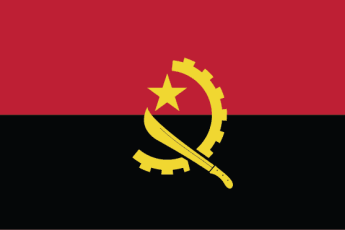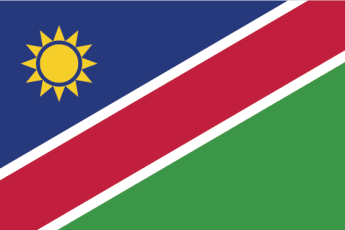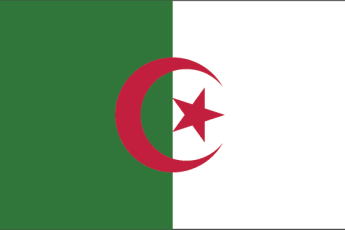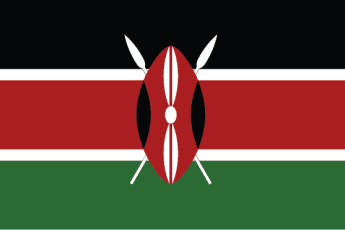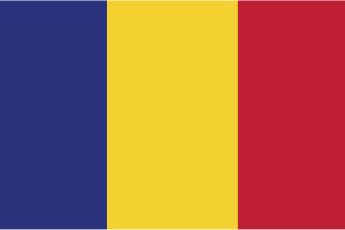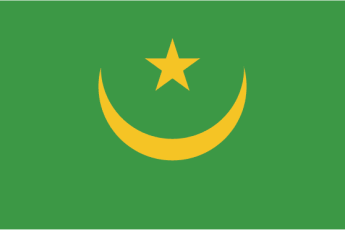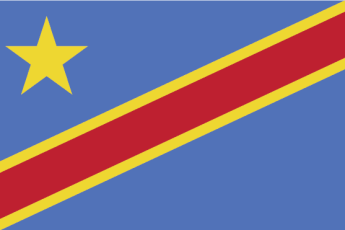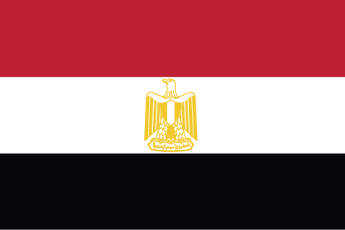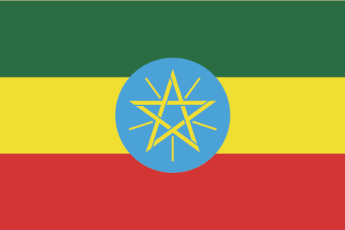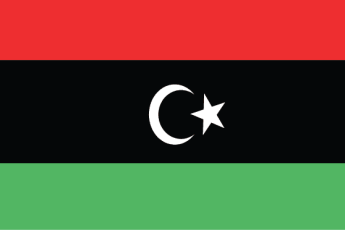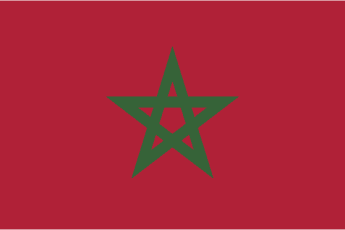Why Choose Malagasy Brides?
You may be wondering: Why choose a Malagasy bride? This article will answer that question. Malagasy women are more attractive than women in other countries, and they can be more affordable than women in other countries. The Malagasy culture is unique, but many of the same traits that make them desirable in other countries apply to them as well. Read on to discover why Malagasy women make ideal brides.
Vodiondry is a formal engagement
Traditionally, Malagasy brides and grooms must have a traditional ‘vodiondry’ before they can tie the knot. The ceremony involves the groom presenting the bride’s family with gifts and introducing himself to them. The ceremony also includes the elders of the bride’s family eating before the rest of them do. If this is the first time that you’ve heard about this custom, you may be interested in knowing more about it!
The vodiondry ceremony lasts for many hours, and there are several different versions of the ceremony. In some regions, men and women wear the lamba around the waist, while women wear it over the bust, and men drape it over a long cotton tunic or shorts. In other parts of Madagascar, the vodiondry is more formal, and a professional mpikabary may deliver the speech.
In the Malagasy culture, the bride and groom exchange gifts and clothes. At the Vodiondry, the bride’s family and groom’s family bless each other and exchange rings. The bride wears her engagement ring on her left ring finger to signify her status as betrothed. If the couple does decide to marry, the groom will visit the bride’s family and present her with the engagement ring.
The wedding ceremony is also a very important part of the Malagasy culture. Children stay at home until they are married, and Malagasy families have a strong bond. Because of this, marriage and engagement are central to Malagasy culture. Vodiondry has special meanings and rituals that are unique to Madagascar and its culture. It’s the perfect opportunity for you to experience these traditions in action and learn more about Madagascar.
Marriage is arranged through a mail order bride service
Unlike women in other parts of the world, the women in Madagascar are seeking a long-term relationship. This type of marriage is arranged through a mail order bride service. The women in Madagascar have nice curvy bodies, beautiful hair, and sparkling dark eyes. While most of the women on Madagascar wear Western clothing, there are some who wear the traditional lamba wrap. In addition, Madagascar women are more conservative than many women in the Western world.
Women looking to find foreign men register themselves on mail order bride services. These services provide profiles for women from many countries and regions. The women are chosen by a man who is looking for a foreign bride. Most of these women come from Southeast Asia and the former Eastern Bloc countries, Latin America, and eastern Europe. They are seeking a man from Western countries and are willing to pay the service to find him.
Many of the women seeking marriage abroad are older, low-level government employees, or self-employed. The Internet made it easier for European men to find wives and women from Madagascar to marry French men. The growth of the French population in Madagascar facilitated this process, and a new generation of young people began spreading the word about their successful encounters. Many women who were originally from Madagascar could find a husband in France, and some women who had already settled there were able to find husbands in France.
While these types of marriages have become commonplace, the services that provide these services are not without their own problems. They are not prostitutes or slaves, but are based in a culture where women are more accepting. Mail order brides must also be legally recognized by the government as being of a good character. This is important, as it will ensure the safety and security of the people involved.
Women are not expected to take on household chores
The country of Madagascar is an island in the Indian Ocean off the coast of Africa. It is noted for its unique wildlife, biodiversity, and abundance of natural resources. Madagascar’s economy has grown from the cultivation of paddy rice, cloves, and coffee. However, the country remains one of the poorest in the world. Over 75% of its population lives on less than $1.90 a day.
Malagasy women, also known as Malgache women, are traditionally subservient to their husbands. Approximately a third of women have their first child before the age of 19. Abortion rates are high. While women in Madagascar are equal to men, they still have unequal economic and political rights. Just six of the country’s 22 cabinet ministers are women. In addition, they do not take on household chores or earn as much as their male counterparts.
The Ombudsperson for Madagascar cannot investigate complaints on gender discrimination or domestic violence against women. However, the Ombudsperson has dealt with cases regarding children’s rights and is committed to ensuring that these rights are upheld. In addition, Madagascar has fallen behind on its censuses: the 1975 census was cancelled due to the political crisis. The 2004 census will focus on population and human settlement and will be the first in over a decade.
In Mananjary village, the Antambahoaka people believe that twins are a curse, and they will bring misfortune and death to their families. Therefore, women who give birth to twins are often encouraged to abandon one or both twins, fearing ostracism in the community. In these situations, twins are abandoned in remote regions of the island where they can die alone.
Women are not expected to be domineering
The present government in Madagascar has prioritized women’s empowerment. The first lady of Madagascar recently pushed for the passage of a law against gender-based violence. The law protects women from sexual, social, and economic violence. Moreover, women are expected to be more responsible than men. The current government has six women among the 22 ministers. While this is not enough, Madagascar’s women are not expected to be domineering or aggressive.
Pre-colonial kings and queens were Merina and Sakalava. They ruled over all of Madagascar and several regional kingdoms. Today, the post-colonial authority of Madagascar’s three presidents is made up of cotiers born of minority ethnic groups. Political maneuvering has resulted in the current government, which is composed of Merina and French politicians.
However, women in Madagascar do not have the same status as in other parts of the world. Their gender roles are often different. Men often take the lead in a relationship, and women are often expected to follow suit. However, this is not necessarily the case. Madagascar’s culture is still developing. The country’s history of revolution is very old. Its population has experienced more revolutions than any other country in Africa.
Males have all the privileges
Madagascar is a traditional country where males have all the privileges when it comes to choosing a Malagasy bride. In Madagascar, this means that there is no right or wrong way to choose a bride, so long as both parties are willing to compromise. However, many people have questions about this practice. One documentary shows how arranged marriages are conducted and what it means for the Malagasy people’s sexual relations.
Important Aspects of Dating With Malagasy Girls
There are several important aspects of dating with Malagasy girls that you should be aware of. These women tend to be very beautiful, especially when they are young. They know how to groom themselves and dress nicely to make themselves look their best. They also value personal hygiene and take care of themselves, often overdoing makeup and grooming products. Here are some tips on how to approach a Malagasy girl to find out more about her.
SecretBenefits is a good place to find sexy open-minded girls in Madagascar
It’s not uncommon to find hot women in Madagascar looking for hookups. This exotic destination is known for its low economic status, so it’s not uncommon to find women who are happy to fling for the sake of money. SecretBenefits is a good place to meet such women. You can also find a more personal alternative to escorts, since the girls are not interested in charging you by the hour.
Registration is easy and free. All you have to do is provide a few basic details and upload your photo. You can view profiles and chat with potential sugar-babies within minutes. Another great feature of SecretBenefits is the search feature, which is one of the most important aspects of a dating site. You can look up a member by location, gender, or age, and you can easily send a message. You can also turn on or off the visibility of your profile.
One of the best features of SecretBenefits is its ability to help you find women from different religions. Most of the women in Madagascar belong to Hinduism, a religion based on the belief that the Great One lives in every human being. They believe in gods and idols, and they are often very curious about what you’re looking for in a lover.
Malagasy women are typical African women
Malagasy women are viewed by many as prostitutes and women of little virtue. However, these stereotypes are wrong. Malagasy women are typical African women in many ways, and it is important to appreciate their values and traditions. The Malagasy women have always sought to bring their families closer together through kin networks. This ties them to the people who have given them their life.
Madagascar was once a small island populated by various kingdoms before the French arrived and colonized the island. Before the French arrived, there were four major kingdoms on the island. The early Merina society was divided into four different castes, each with its own distinct cultural characteristics. In the nineteenth century, the country was ruled by Radama I, who succeeded his father Andrianampoinimerina.
In Madagascar, women are dependent on their husbands for survival. They are expected to marry Frenchmen, which means working at low-wage jobs for very little money. This way, they can support their families. They also have to justify their presence in France, as their kin expect them to be wealthy. Despite this, women often accept low-paying repetitive jobs because they are required to justify their presence in the French culture.
They are self-sufficient
If you’re interested in dating a Malagasy girl who is self-sufficient, you’ve come to the right place. The Malagasy women have long aimed to bring together their families and foreign kin networks. You’ve also likely learned the cultural differences between Madagascar and France, and you’ve found a great match. But don’t be fooled by appearances – there’s more to dating a Malagasy girl than meets the eye.
The first thing to understand is that Malagasy women are often seen as a relic of past centuries. The Malagasy vadimbazaha, a female mistress in the island nation of Madagascar, must justify her existence to her kin. Because women in the country are expected to marry Frenchmen and work at low-wage jobs, they are often forced to live under the impression that they are a vadimbazaha.
As a consequence, dating a self-sufficient Malagasy girl is an enlightening experience. This country is rich in culture and tradition, and you’ll likely find some beautiful, charming, and interesting girls there. Malagasy society is traditionally matriarchal, and once ruled by a queen. Today, women are considered equal to men and can hold the position of clan head just as easily as men.
They are honest
If you’ve ever tried dating a Malagasy girl, you know the importance of being honest. The first thing to remember is that Malagasy ladies are incredibly devoted to one man. That being said, they can’t stand jealousy scenes, so don’t expect any naughty behavior from them. Instead, be a gentleman and be willing to compromise. This way, you can build a lasting relationship.
The Malagasy women have an inherent sense of honor and dignity. Being honest about your thoughts and feelings will help you establish a strong connection. In addition, they value strong family traditions. That’s why you should always be honest with them, as it will help prevent any problems later on. This will make you a better partner, and ensure that your relationship will last. In addition to being honest, you should communicate with Malagasy women on a regular basis.
As for the women, you’ll find that they are strong and courageous. They have endured countless trials and tribulations. These women have been through long centuries of hardships and trials. However, don’t think that Malagasy women are cloaked in long, dark clothes. They can look quite different from their counterparts in other countries. The only way to be sure of their sincerity is to ask them out for a date!
They are subservient to men
Males and females in Madagascar are both subservient to each other, and a woman’s role is largely predetermined by her gender. Males are dominant over females, and women are largely subservient to men in marriage. Malagasy women are very spiritual and possess high superstitions. They believe in spirits and associate certain objects with their own superstitions. Males should be aware of these superstitions before dating a Malagasy girl.
Males should be aware that Malagasy ladies are submissive and will not challenge a man’s decisions. Females are only allowed to offer aid and recommendation. They should not argue with their man or offer specific tips. Women should learn to be light, not dominant, and to trust their partners’ decisions. Men should be aware of this and learn to respect their wives’ culture.
Males should consider these customs and upbringing before approaching a Malagasy woman. Men should be aware of the importance of their women’s role in their family and society. If you are a man looking for a woman who is submissive and obedient, Malagasy ladies aren’t for you. Their beauty and femininity aren’t as appealing to guys as they used to be. In the past, enchantresses from the harems won over sultans through beauty and femininity. In addition to beauty, humility and tenderness did not leave any fella unsocial. Today, Malagasy girls know how to charm a man and impress him to give them his undivided attention.
3 Lessons From Malagasy Women For Marriage
Western women are not devoted to family prices. They are occupied with feminism, fighting for equal rights, and manufacturing careers. They want to earn money, just like men. But Malagasy women do not prioritize family and household chores. They place priority on their children, their husbands, and the house. That is why many Western men are not attracted to Malagasy women for marriage. Hence, it is important to understand the lifestyle of Malagasy women before considering them.
Lessons learned
In this culture, women trade their sexual and caring labor in order to find a husband. Though they often move from one family to another, they never forget their roots. Men support them by sending gifts and money and providing material support. Malagasy women have learned how to manage their lives with respect, love, and money. Here are three lessons from Malagasy women that can help you achieve happiness and success in marriage.
The first thing you should do is get engaged. In Madagascar, getting engaged is a major milestone. This is known locally as “vodiondry.” It involves the groom inviting the bride’s family to a ceremony, where he introduces himself and presents gifts to them. Malagasy women can be very beautiful, and this is one of the best ways to attract a man.
Women in Madagascar have to constantly navigate competing visions of themselves and their roles. They must negotiate competing visions of motherhood and daughterhood. This is a difficult task, but if you take the time to study the Malagasy vadimbazaha, you will discover that she is the mistress of the household. While her role in a family is not an easy one, she must constantly justify her existence in a foreign land.
Characteristics of Malagasy women
For more than 200 years, Malagasy women have been seeking European men. The Malagasy people have a strong sense of family, and women have always sought male kin, whether they be European or African. The Malagasy women that are looking for a husband have been doing so in a traditional way. Male relatives support them with money and gifts. This is one of the reasons why they make such attractive women for marriage.
Before a Malagasy woman can be selected for marriage, the families of both parties must discuss the proposal. The groom’s family pays for the bride with a few thousand francs or a head of cattle. This gesture allows the family to reimburse the groom’s family for its expenses. The Malagasy woman for marriage has an innate sense of loyalty and fidelity, which are important qualities in a partner.
Women in Madagascar are expected to obey their husbands and take care of the household. They manage the family’s finances and inherit property. Most women do not participate in society’s decisions, and their role is to protect and care for the family. Women wear Western-style clothes, but it is common to find bad-quality imitations of Western outfits. In addition to the western-style clothing, Malagasy women wear traditional attire that resembles their Western counterparts. The lamba, which looks like a toga, is typically worn over a dress. Older women don’t wear pants, but instead wear a white lamba over a blouse.
Values of Malagasy brides
The values of Malagasy women for marriage are diverse and rich. Many women trade in caring labor for money. While this is a common practice in the country, women also trade in sexual labor in order to attract a husband. The Malagasy do not see money and intimacy as opposites. Intimate care is seen as a resource and a necessity. Similarly, men support women with money and gifts.
A Malagasy woman will make an obedient and respectful wife. This is not surprising, considering that these women were raised in a society that values the male members of the family. Despite this, Malagasy brides will always respect their husband’s authority and will always seek his consent before making major decisions. While this may sound like a contradiction, it does not make them illegitimate, and is an important quality in a future wife.
The male partners of Malagasy women for marriage are essentially the same as their own families. Their husbands earn a living and are expected to support them financially. However, these women have little money of their own and must rely on their husbands for all of their needs. Thus, they must work for low wages and must be content with low wages. They have to justify their presence in France.
Efforts to find a vadimbazaha
The word vadimbazaha is Malagasy for “European spouse,” and traditionally, Malagasy women have sought the role of vadimbazaha in order to create social networks and flows of people and opportunities. While prior generations of vadimbazaha stayed in Madagascar, current economic conditions in the island nation have forced women to leave for France, seeking a life-sustaining flow of resources to return home. Interracial relationships are frowned upon by many in Madagascar, but their persistence is testament to the uniqueness of this role in Madagascar.
While some women seek marriage outside the culture, others marry outside the family to obtain economic gain. Some Malagasy women choose to marry outside of their culture, such as in France, in order to be closer to the French. While this option may seem ominous, it is a viable choice for many women. By marrying a foreigner, these women can secure employment in France and move to the country of their choice.
The sexual economy in Madagascar has grown rapidly in recent years, with many young women seeking sex in exchange for money. The resulting imbalance in the country’s society has led to an increasingly desperate population of young women looking to find a vadimbazaha in Madagascar. They can now be seen in movies that feature vadimbazaha and the resulting exploitation.
Social pressures to marry a vadimbazaha
In Madagascar, women often seek out European men, known as vadimbazaha. They migrate to France to find these men and imagine the luxurious life and access to resources that they can gain from being in Europe. The role of the vadimbazaha is crucial to the survival of this subsistence-oriented society. Yet, these marriages can be fraught with social and cultural pressures. Fortunately, there are also ways to avoid the social pressures to marry a vadimbazaha.
Women in Madagascar have to work hard to make ends meet and often rely on their husbands for money. They work in low-paying jobs to send home money. Malagasy women’s role as vadimbazaha is often to take orders from their husbands and family. They draw their husband into a complex web of reciprocal obligations and expectations. They are also burdened with the social stigma that the former French colony imposes upon them. Their presence has to be defended to keep their kin from judging them. Many women accept low-wage, repetitive labor.
In addition to migration, Malagasy vadimbazaha must also negotiate competing expectations about who they are and what they want. They must negotiate competing expectations about motherhood and daughterhood and must balance their own sense of self and the expectations of others. This is an ongoing, challenging task that requires a vadimbazaha to negotiate competing visions of her identity and her potential to earn a livelihood.
Dating a vadimbazaha
Dating a vadimbazaha for wedding has many challenges and benefits. First of all, it is important to consider the cultural and traditional ties that are involved. In Madagascar, vadimbazaha are women who work for low wages on farms and are a central part of the local culture. They are expected to take care of children and care for their relatives. Because of this, their role in society is very important.
Although many women from coastal Malagasy communities in France are considered vadimbazaha, they are not automatically eligible for marriage. As the second oldest girl in her family, vadimbazaha are often in a precarious situation. They are expected to prioritize their relationships with their families, especially since they may come from poor communities. As such, they should be careful when choosing a man for marriage.
In Madagascar, the vadimbazaha have quasi-mystical power. They are linked to ancestors and kin and have the power to influence family decisions. This status is seen as a mark of precedence in the family. In Madagascar, when a daughter marries a vadimbazaha, her parents will celebrate her coming to France. They will expect her to receive honor and resources from her parents.
Malagasy Wedding Traditions
In Malagasy wedding traditions, the marriage ceremony is a religious occasion, and there are some important customs involved in this celebration. During this time, the couple carries out Vodiondry, a traditional ritual in which gifts and flowers are offered to the Ambiroa, who summon the couples to receive offerings and dismiss the “tsiny” (unhappiness). A big family gathering follows the marriage ceremony, called Famadihana.
Vodiondry is a sign of respect
Vodiondry is a traditional stage in a Malagasy wedding tradition, in which the groom presents a gift to his future wife’s family. The gift is usually a lamb rump, but in some regions, a live zebu is given as a dowry. In Malagasy culture, it is also considered a sign of respect for elders. The elders of a family must eat first before the rest of the family.
During a traditional wedding ceremony, the suitor and his family go to the bride’s home and ask her hand in marriage. At this time, the future groom’s family makes a speech through a professional rhetoric speaker explaining the origin of the marriage, the conditions, and the rules. The marriage agreement is sealed with the Vodiondry ceremony, which includes delivering a dowry envelope containing banknotes and coins.
In Madagascar, the bride’s family will also be given a gift. In many wedding traditions, the groom will give a gift to the bride’s parents. The gift will be a symbol of his appreciation for their daughter’s life. It also serves as a token of respect for the bride’s brother. It is also a symbol of respect to the groom’s ancestors.
Ambiroa are summoned to receive offerings
The bride and groom must first get engaged “traditionally” before the ceremony can take place. This ceremony is known as “vodiondry” and is characterized by the groom presenting gifts to the bride’s family. This meal is an important tradition that serves as a symbol of unity and appreciation. The newlyweds are then served rice and milk with honey on the plate.
During a wedding in the Malagasy culture, the bride and groom give offerings to the ancestral spirits, known as the Ambiroa. These spirits are said to receive offerings in exchange for peace and honor. After the fafy ritual, incestuous marriage becomes normal. Moreover, Malagasy proverbs describe anomie and imperfection as everyday realities and consider them to be partially redressed through socialization, or the fihavanana process.
The father is also invited to give an offering. The midwife will give the man’s umbilical cord, with the attached placenta, to the father. It is believed that the man’s blessings will help him in his new life. The father’s prayers are asked to be answered to ensure the life of his child. The wedding ceremony is followed by a “famadihana”, which is a large gathering of the family. It is a celebration of life.
The bride’s brother is also invited to the wedding. He is presented with eyewear as a gift to the bride. It is meant to ‘erase’ the memory of his sister and show consideration to him. In the Malagasy wedding traditions, the bride’s brother is also given an eyewear gift. This is known as mpikabary. The ceremony is characterized by various rituals and traditions.
Ambiroa dismiss the “tsiny”
In the traditional Malagasy wedding ceremony, the bride and groom exchange a “tsiny,” or gift, before the ceremony begins. This gift symbolizes peace and goodwill from God. Although the Malagasy wedding ceremony is not unique, the practice is reminiscent of other Malagasy cultures. However, it is not always possible to make the gift of peace.
The Malagasy conception of fihavanana recognizes existential tensions within family blood relations and duty-based social solidarity. Immoral behavior and hierarchy-challenging attitudes can undermine kinship and lead to severe admonitions from Elders. It is therefore wrong to see fihavanana purely as a biological tie, but rather as an experimented life-situation.
Famadihana is a big family gathering after a wedding
In the southern islands, famadihana (meaning “big celebration”) is not uncommon. The gathering is a traditional way to remember the deceased and celebrate the new union. However, this celebration isn’t held in the central highlands. This is because the Merina and Betsileo have different views on the dead. The Malagasy believe in the existence of several different souls. These different souls are called “fanahy” and determine the character and behavior of a person. After death, a person’s soul is called “ambiroa” and is re-united with the collective spirits of the ancestors.
The Famadihana ritual is a deeply personal and community-driven ritual. Extended family members will turn the bones of several bodies simultaneously. The famadihana ceremony is not cheap, and often involves preparing a huge feast for hundreds of guests. But if you want to experience a traditional ritual in its true spirit, the Famadihana is well worth the expense.
The Malagasy have a deep ancestor cult and famadihana is a time for family members to come together after the wedding and the death of a loved one. The Famadihana is a time to celebrate the life of loved ones, as well as the lives of the living. Historically, this festival has acted as a link between the living and dead worlds.
Lamba is a traditional wedding dress
The bride wears a traditional lamba, a long piece of cloth which is worn around the waist, shoulder, and head. The lamba is made from a blend of cotton and silk and measures around 300cm in length and 30cm wide. Traditionally, it was the only type of wedding dress worn by the women of Madagascar. Nowadays, it is worn over western wedding dresses.
The vodiondry (literally: lamb rump) is the most significant part of the Malagasy wedding tradition. This is a gift given by the groom to the bride’s parents and is considered a token of gratitude. It is not money, but the gift gives consolation to the bride’s parents, especially the grandmother. The groom may not know the meaning of the vodiondry, but he is still glad to offer it to her family.
Women wear the lamba in the same way men wear western clothes, but the appearance of the gown depends on the region where the woman lives. Many women wear a lamba one day a week, while others only wear it on special occasions. Those who are younger and fashion-conscious may choose to wear a lamba while at home, but not when they go out. In the towns and coastal areas, women often wear western clothing, while wearing their lamba when they go out.
French-Malagasy crossbred marriage
The emergence of a new breed of Malagasy people in the early 20th century has brought a unique cultural heritage to Madagascar. Women from distant villages and remote regions have intertwined social networks, and are constantly relocating from one village to the next. Although the women move between families and communities, they never lose their natal bonds. Men, meanwhile, support their wives with gifts and money. However, during the colonial era, interracial relationships were discouraged because of concerns about the deterioration of the French prestige in the country. The nationalist movement likewise argued against these relationships.
Before the arrival of the French, Madagascar was inhabited by several kingdoms. Prior to the French conquest, there were four main kingdoms. The Merina Empire and the Merina Kingdom ruled the high plateau. Later, the Merina Empire extended their rule to the neighbouring island of Moheli. The Radama dynasty, a descendant of King Andrianampoinimerina, reigned during the nineteenth century.
The Malagasy speak the Malgache language. The language was introduced to Madagascar by French sailors from East Africa. The Malgache population is largely of African and maritime Southeast Asian descent. The Malagasy share much in common with the Ma’anyan language of southern Borneo. This resulted in a stunning diversity in physical traits among present-day Malagasy.

